Interview: Lisette Oropesa, the Met's Courtesan of the Moment, Brings Her TRAVIATA to Town
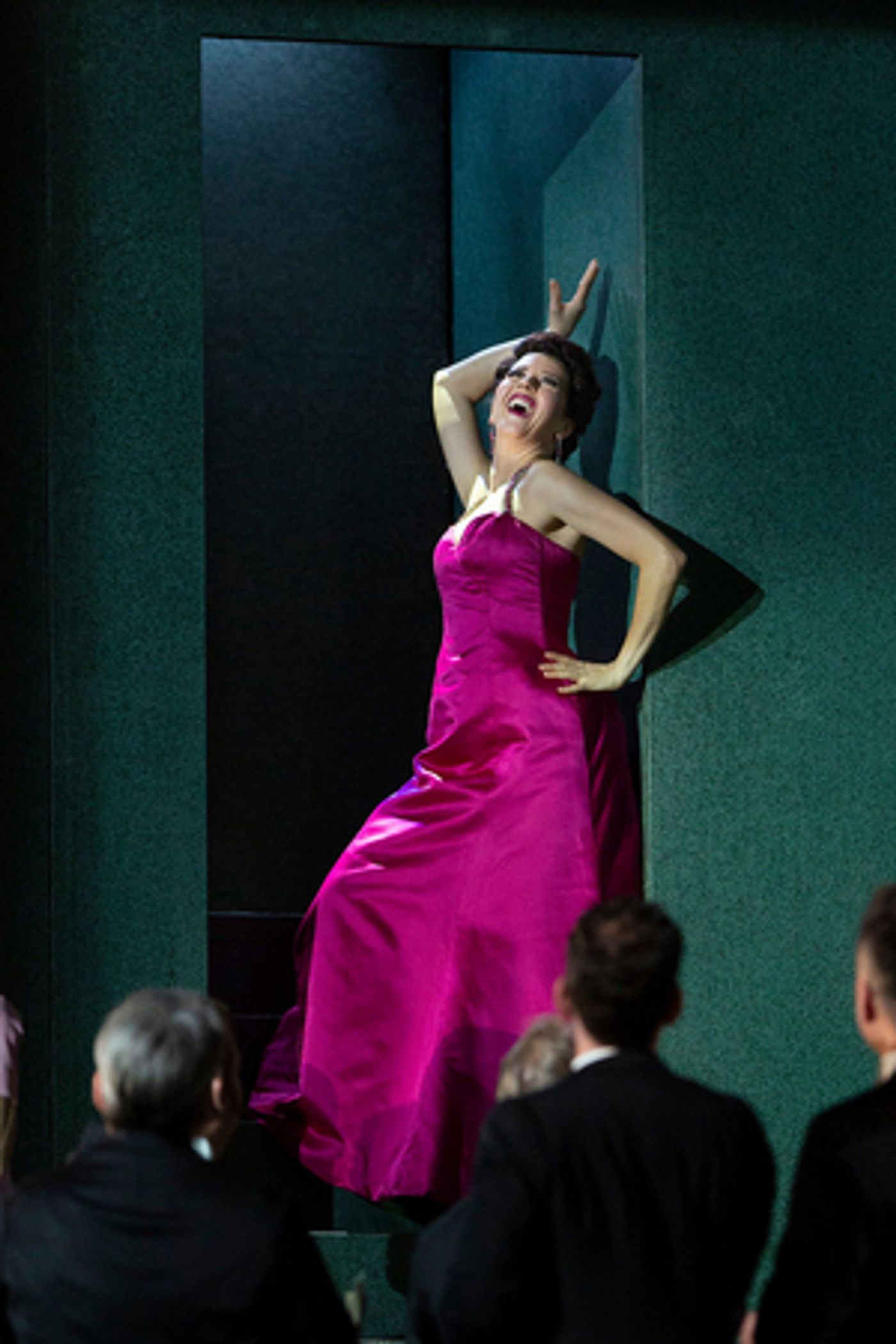
Photo: Marty Sohl/The Met
It's been a big year for soprano Lisette Oropesa, with starring roles in Handel, Meyerbeer, Rossini, Donizetti and Verdi in major European houses.
But in this country, it's something else entirely: She won the Richard Tucker Award ("to an American singer poised on the edge of a major national and international career") and then the Met's Beverly Sills Award ("given to extraordinarily gifted singers with rising Met careers"), with all the prestige involved.
Then came her first name-above-the-title roles at the Met, starting with her role debut in Massenet's MANON on the second night of the Met's current season (and included a Live in HD broadcast seen around the world). This week, the Cuban-American singer from Baton Rouge makes her house role debut as Verdi's Violetta, known as 'the lost one,' or LA TRAVIATA.
I ask her, "What does it like doing these two roles here this season--roles that have a lot in common but are also quite different?"
"They are sister roles, sister kinds of stories," Oropesa tells me.
"I think there are lots of similarities, in the things that happen to them," she continues. "They both become courtesans, both have love affairs with characters that they can't have for societal reasons. The main difference--beside the fact that Violetta is so ill from the start--is that she is a much more experienced, pessimistic person, whereas Manon is more innocent and hopeful.
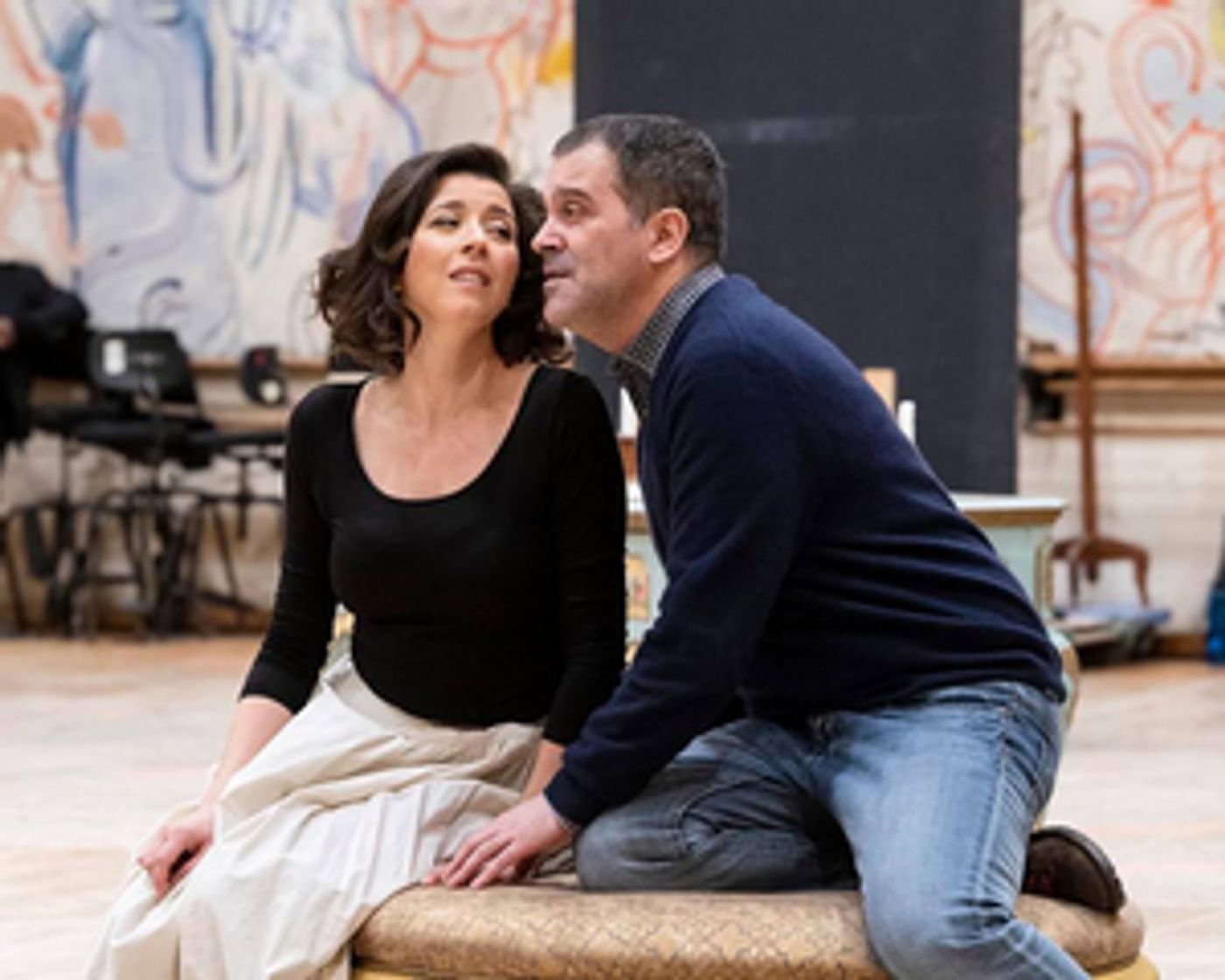
Pretti. Photo: Jonathan Tichler/Met Opera
"Yes, she dies at the end, but until then, she thinks her life will be fine. For her, it's all about today, tomorrow. And that's the struggle for us with Manon," she explains. "We want her to be the hero, to be innocent, to be good, so we can root for her--and that's hard. How can you? How could she dump a great guy like des Grieux, who's given up his whole life-- his wealth and position--for her?
"And then she runs off to be with some old rich guy. Why? What a horrible person," she adds. "And then she comes back and tempts des Grieux after he's gone into the church, to seduce him back into her life because of her own selfish needs.
"Violetta you can root for a number of reasons. First, because she's sick: You feel bad that this person is suffering and knows her impending doom. Her whole life is based on that, with all the choices she makes a part of that. It's all in her psyche. So having the bed on stage so much, as in the current Met production (by Michael Mayer), is actually good for understanding the character, I think."
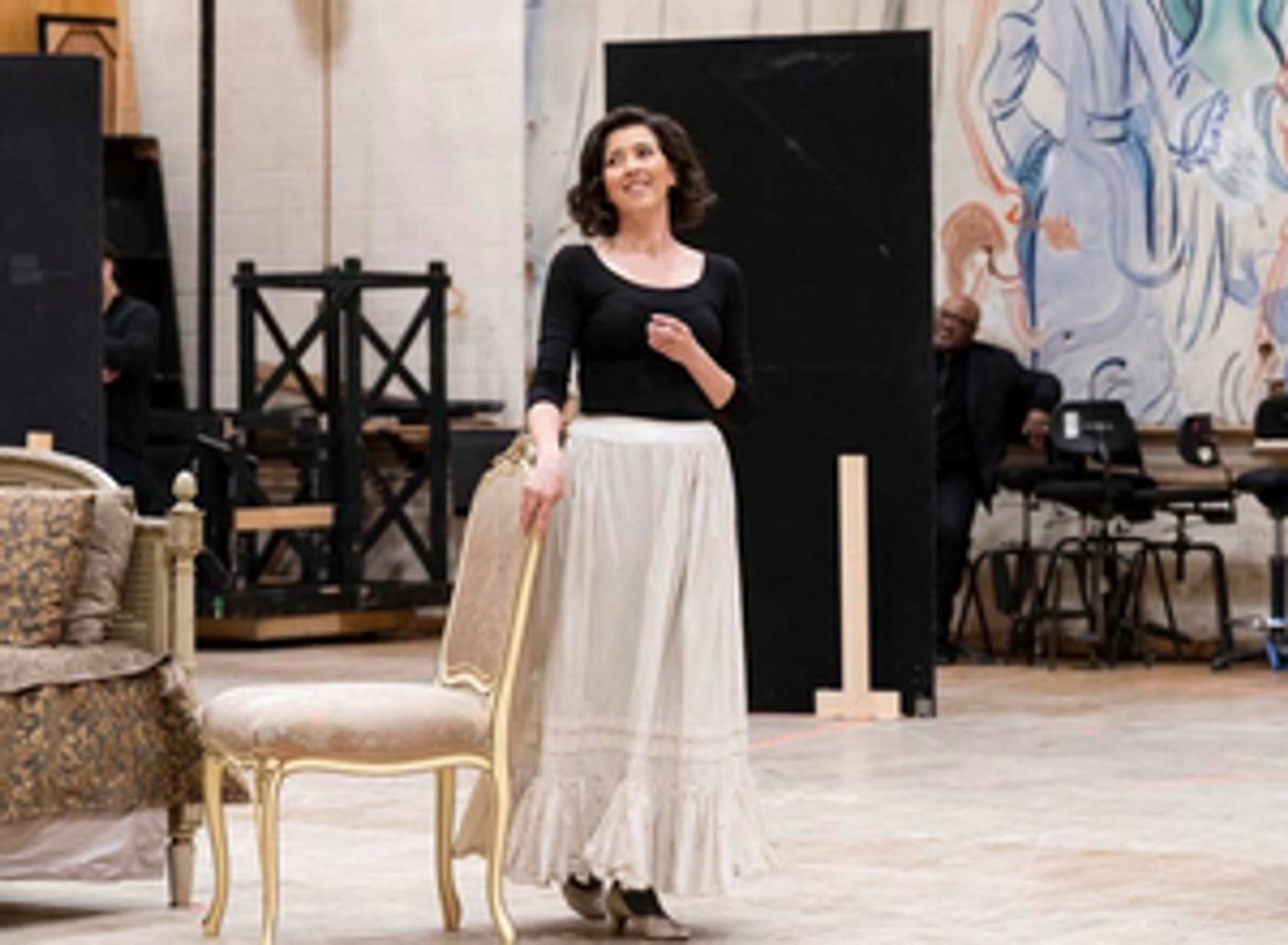
Photo: Jonathan Tichler/Met Opera
TRAVIATA is based on "La Dame aux Camelias" ("Lady of the Camelias") by Alexandre Dumas fils (his father wrote "The Three Musketeers"), first as a novel, then as a hit play, which Verdi swooped down on and turned into his opera within a year. Of course, it's also known for its film version with Greta Garbo as "Camille." These, in turn, were inspired by Marie Duplessis, a 19th century courtesan, a famed party girl who had a short, sometimes-happy life, before dying of tuberculosis at 23.
"In the Dumas book, Camille (actually, called Marguerite Gautier by Dumas)," says Oropesa, "was really interested in the story, the character, of Manon Lescaut, the source for MANON and Puccini's MANON LESCAUT, who's very immature and only interested in the accumulation of 'stuff'.
"People, like Manon, are interested in silly things that pass, in fun, and just living for the moment. That's a very young point of view. An older person--Violetta is not very old, but she is mature--is thinking about the long run: reflecting on the things that count, the things that matter, like love, like family, stability. Manon just wants to have a good time. Like she says, 'Let us love, laugh, sing. We won't be young forever.' In a way, it's something that someone who has TB, who knows she won't have a long life, would say.
"So I've always questioned whether she's really sick from the beginning and doesn't know or knows and doesn't tell anyone. Maybe she and Violetta have that in common, though we don't know (it would take a director to pull that out)," Oropesa speculates. "Manon's young and heading to a convent. She would never have had a chance to kiss a boy or sleep with a guy or have a relationship.
"To have her immediately thrown into this place where she knows she would be restricted. She can only guess what she'd be missing. I think that if des Grieux hadn't come along, she might have run away with Guillot because he offered her a chance to get out. It was a choice. 'Hey, I could go with this guy,' she's thinking. She knew his car was coming and she could have run off.
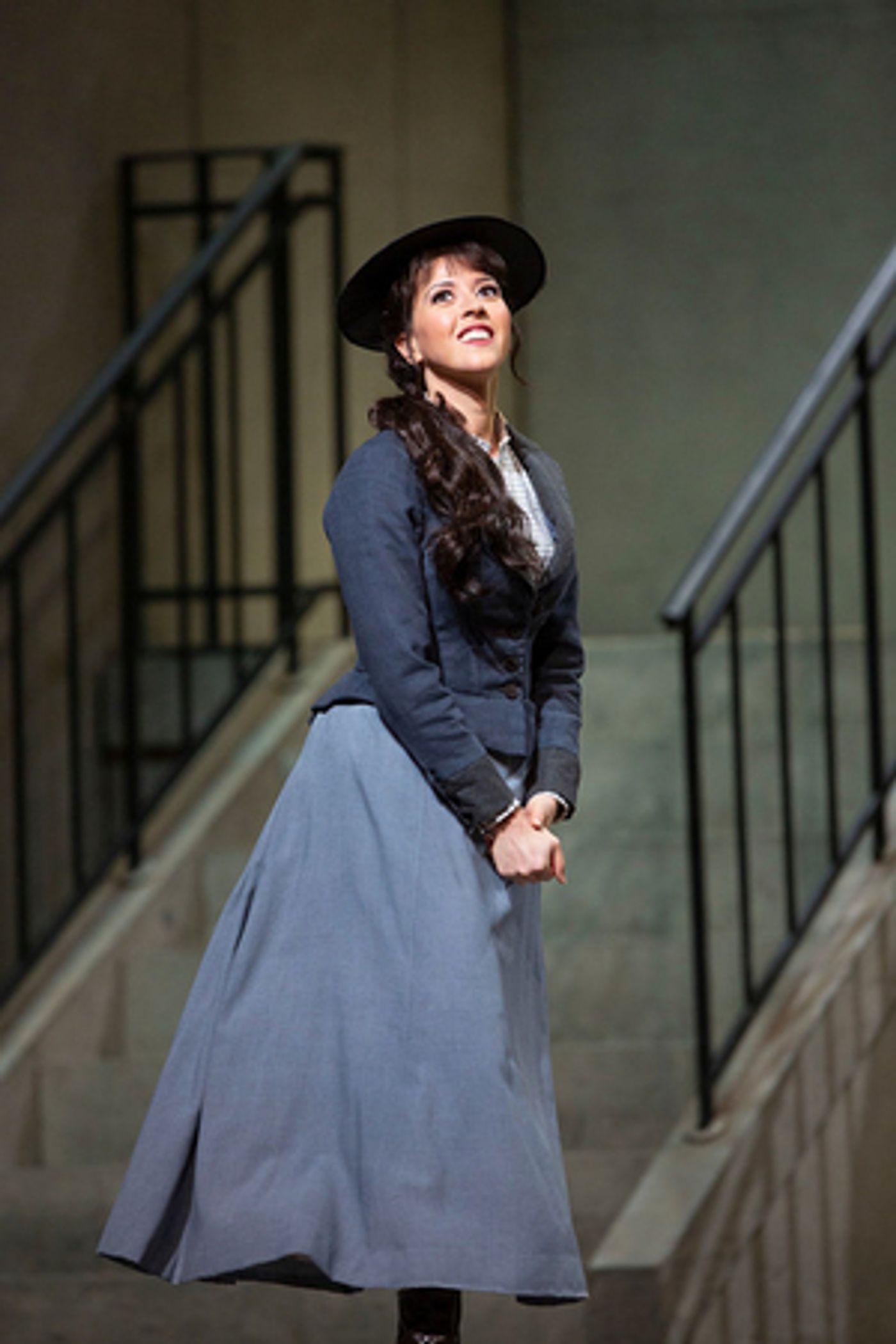
Marty Sohl/The Met
"It just so happened that des Grieux shows up--and it's the best choice at the time. That's how life is for her--she jumps on the opportunity: He's a cute guy, he's young. Maybe she wasn't 'ooh let's fall in love.' He was the one who said, 'Let's fall in love and live in Paris; let's get married.' She wasn't thinking that far ahead."
What do you do to make her more palatable for the audience, I ask?
"You have to make her young," Oropesa asserts. "You have to make her a young person who makes mistakes. people make mistakes--I made mistakes when I was young that I wouldn't have made later on. You can't say, 'I'm judging her by my 40-year-old mindset.' That's ridiculous, because she's not 40. She doesn't know better. This is a person who's doing the best she can in the situation she happens to be in.
"She's a person with a great personal flaw and the that is being a little selfish and indulgent. And not really giving a damn about consequences--and that's hard to swallow. I think that's the reason people get frustrated with this opera, and have a hard time watching it. But it's also the reason that we keep doing it, because people talk about it on the way home in the car.
"It's also the sound, the French style of Massenet's writing, that helps it come across younger. There's more lightness, more high notes, more coloratura. Of course, there have been many great Manons with what you'd call a full lyric voice. But for me, with the way my voice sounds, the way my voice works, she comes across much younger.
"The thing about opera, there are some roles, like Manon, you can interpret on the spectrum--really in any direction, because they have variety written into them. Violetta is that way, too, although people are always asking me: Isn't TRAVIATA an opera for three different sopranos? One soprano per act?
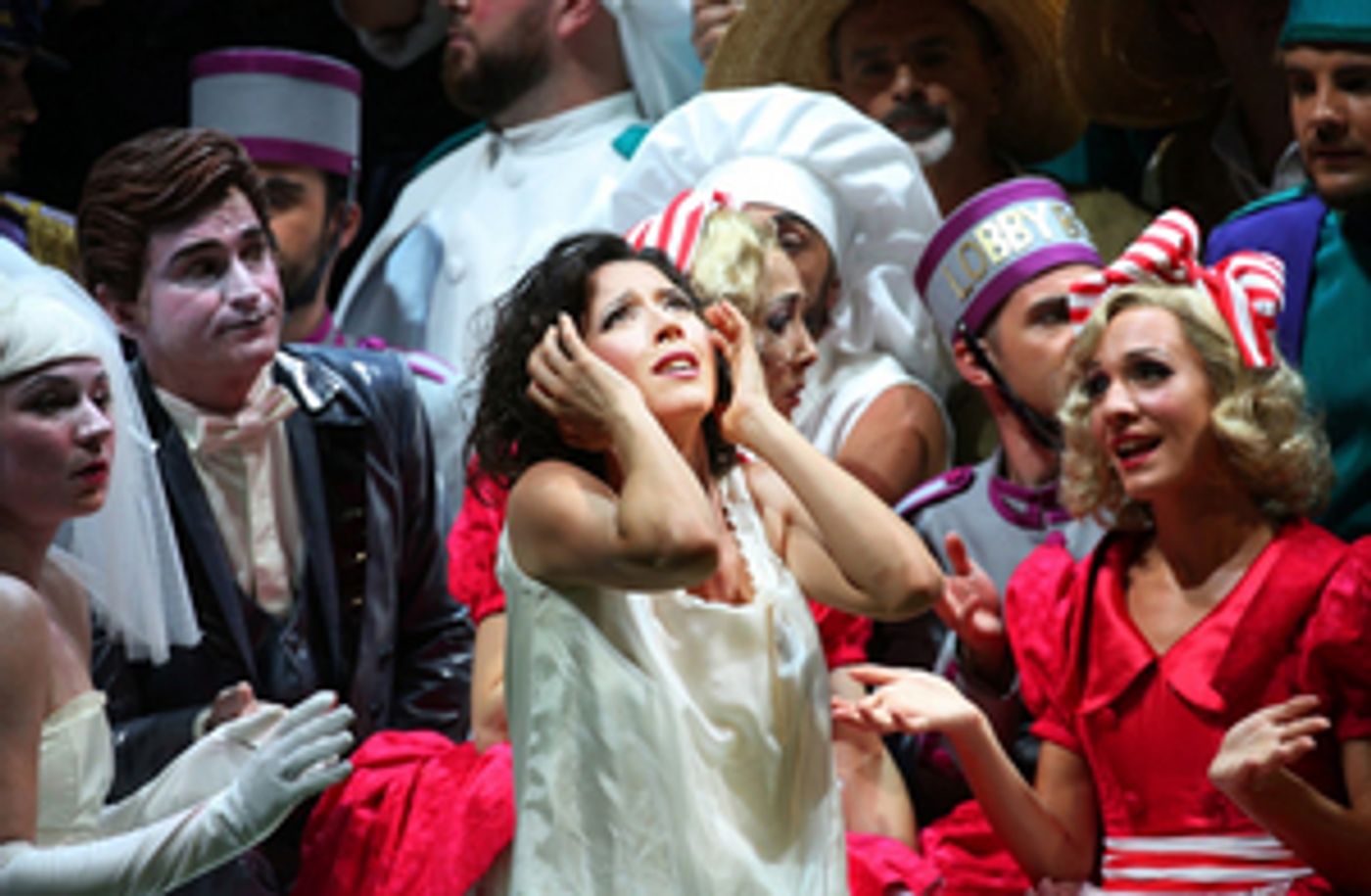
Festival in Pesaro. Photo: Amati Bacciardi
"And I say, 'Yeah, if you want to look at it that way. But ideally, any singer should be able to sing coloratura within reason, with dynamics within reason, with the ability to use her physiology. And every singer should be able to act. And it's a masterpiece. A great story.
"That means almost any soprano should be able to sing TRAVIATA--if she has the range to sing what's written. You don't have to sing E-flats: You just have to sing a few of the written high notes. But there's nothing ridiculously low; there are very few low, low, low notes. It's open for interpretation. That's what so beautiful about our art form: We can see the character from different angles.
I ask what the biggest challenge is for her in making Violetta a person that people are going to take to heart.
"One challenge for me is that it's the first opera I ever heard--my mom sang it. So it was my mom's kind of role and I always hear her. I also listen to a lot of recordings. The original Dumas is such a sad book--one of the saddest books I've ever read.
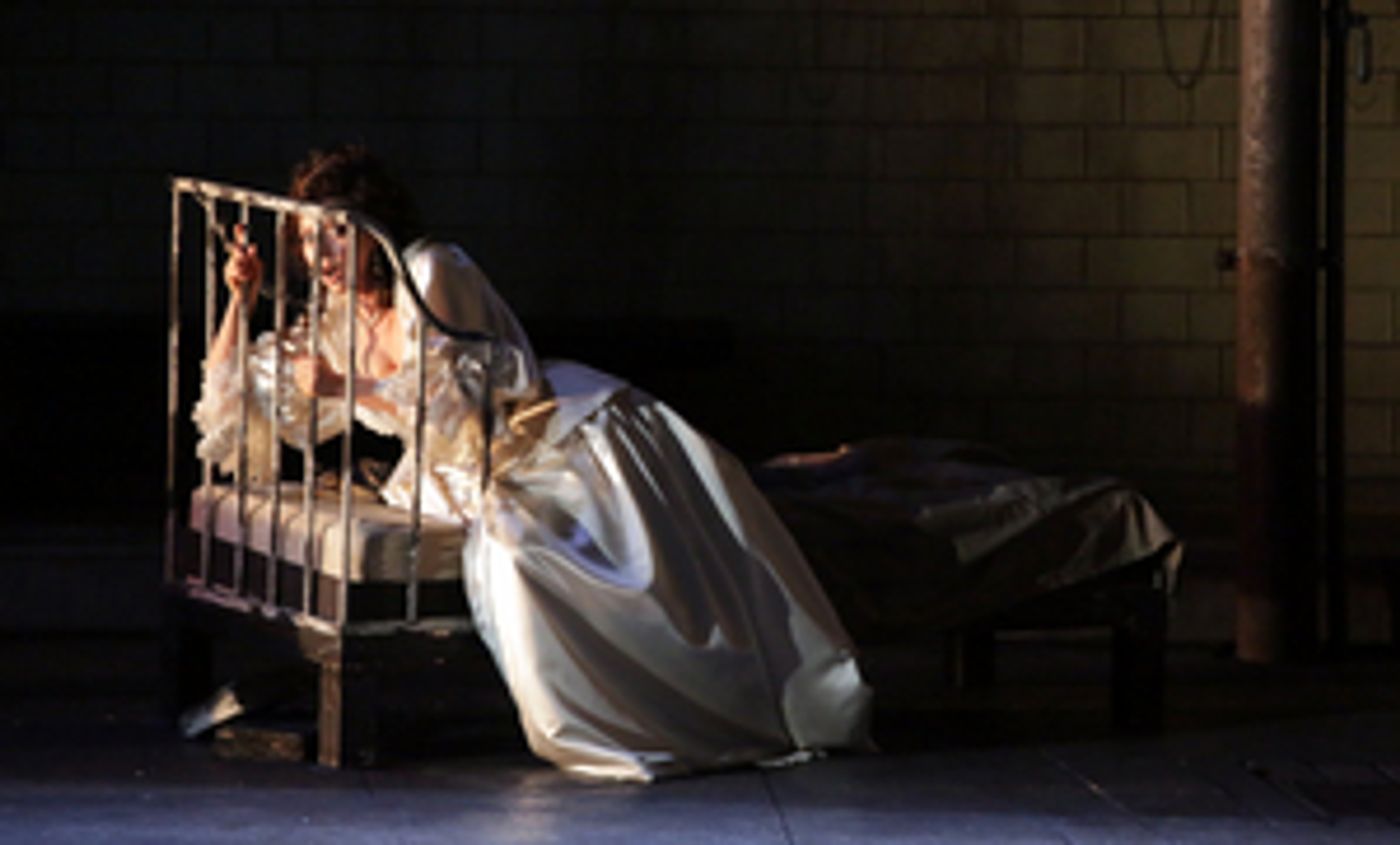
Photo: Brescia - Amisano
"When I was first studying the role, I read the book and couldn't pick up the score for months because I was so emotionally broken up by it, because she doesn't die with Alfredo (NB: Armand in the book). She dies completely alone, unloved and forgotten by everyone. He comes back later, but only thinking about himself. In the book he's a much more selfish lover than he is in the opera, where Verdi and the librettist Piave make him much more innocent and loving.
"I've always thought of Violetta as a business person," Oropesa explains. "At the start, her life is very transactional and not emotional. The number of lovers she's had is about her bills and nothing else. She left behind her emotional life early, because as soon as she took on this life, she had to put it away to survive. Alfredo is the first time that she's felt loved by someone, seen by someone, other than for her body, her services. She has this emotional awakening, changing from a person with a business mindset. You have to try to make that clear for the audience in the first act, and I think that is where you really see an interpreter's Violetta.
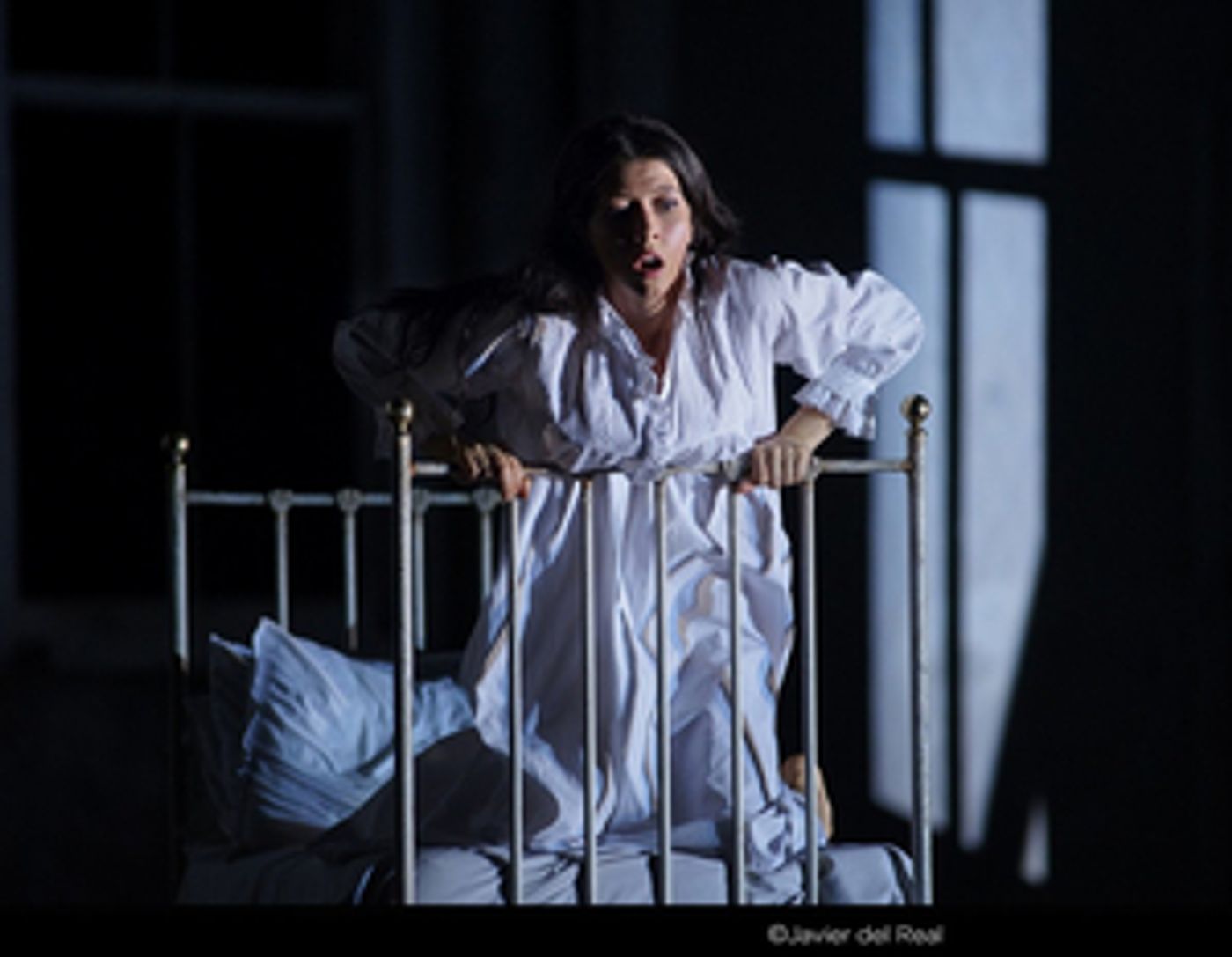
Photo: Javier del Real
I remind her about people thinking that the opera needs three different sopranos, but even in the first act alone, I say, there's a huge arc.
She agrees, "Absolutely. Everything happens in the first act. Everything emotionally for her. Then the dramatic turn of the story gets even worse in the second act, when Alfredo's dad comes along and says, 'I don't think so, this isn't happening. I don't care if you're sick, I don't care if you're selling all your stuff. You're not marrying my son because I have a daughter who has an important future ahead of her that you're ruining. And you're never going to change who you are. So get the hell out of my son's life.' And that's a really hard thing for her to hear. But somehow in their duet, there's a journey from his being rather cruel to her to feeling bad, feeling some sympathy for her.
"And this is why I think the opera is so masterful: because every scene has a journey and you never get tired of it. The confrontation at the party, when Alfredo thinks she has left him and throws money at her because he thinks she's selfish and a bitch and has gone back to her old life. Everybody thinks that's the big moment in the opera. In truth, we've already had five big moments before that.
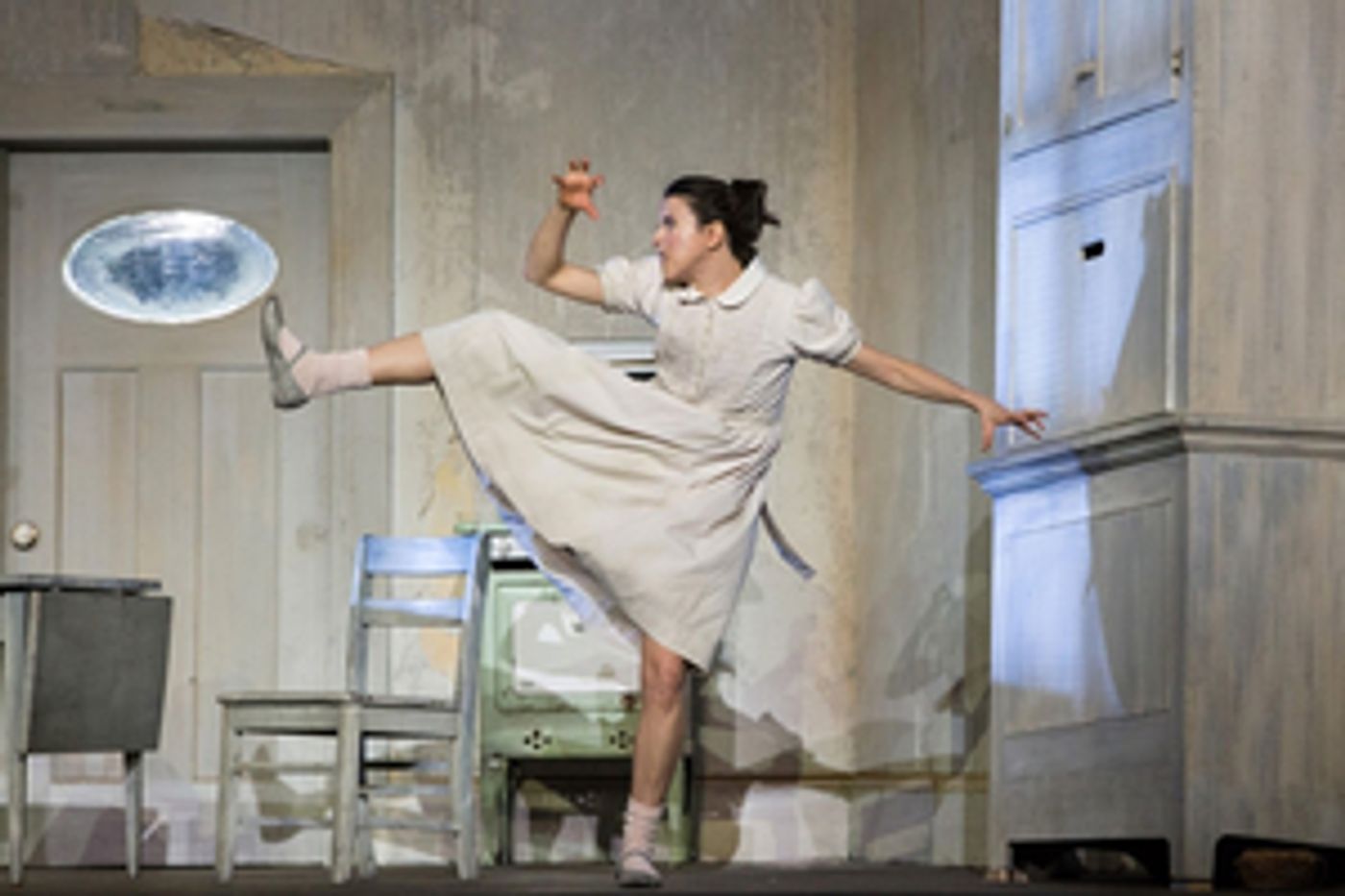
Photo: Marty Sohl/The Met
"The early confrontations--with Alfredo at the beginning, with Germont in Act Two--are in private. Then the big money scene is in front of everybody, bringing in society and shame and elevating it. That's why musically it's so amazing. And she still loves Alfredo even though he did that. Even his father condemns him for doing it: What the hell are you thinking? What kind of jerk have you become? What is this?
"It's a horrible thing for Alfredo to do. But that's the whole point: that moment is poignant because it goes back to her transactional life. The reason that she didn't want to be with Alfredo in the beginning is that he wasn't rich enough. She was used to dealing with barons, marquises, counts. Sure, Alfredo's the son of somebody: Yes, he comes from money but he's young and he's not the level of gentlemen she's used to hanging around with.
"In the book, she says 'You can't afford me--you have no idea how much it costs to have a courtesan in your life, who's as busy as I am.' In the opera, her first aria asks 'Could a real love be a problem for me?'--basically, could she give up earning money to be with someone who loves her and be happy, not rich but happy.
"So when he throws the money, it hurts her so much because he has been with her all this time and he hasn't given her a dime. She's been paying for everything. She's been selling all her stuff. Can you imagine how embarrassing that would have been for a man back then, not to be the person in the relationship who was the breadwinner?
"In the scene with his father, he tells her that Alfredo is going to lose his inheritance because of her. He comes in accusing her, 'where'd you get this stuff? This luxury?' And she says: 'It comes from my money...which I'm running out of. He hasn't spent a dime on me."
Although she's done the role before, she's excited about doing it here with a couple of Italian "superstars"--baritone Luca Salsi as pere Germont) and tenor Piero Pretti as Alfredo--in a production she considers "bright and lively" and very traditional. (She'll do the Willy Decker production, which the Met just put into mothballs, at Madrid's Teatro Real in May, after a run in LUCIA in Munich.)
Her dream roles at the moment include Amina in LA SONNAMBULA and Elvira in I PURITANI--giving a preview of the latter at the gala concert for the Tucker Award last October: an exquisite "Qui la voce," the aria after Elvira goes made, thinking that she has been abandoned by her true love. (Her opener was from Rossini's TANCREDI, "Come dolce all'alma mia," which showed off her gilded soprano and she was also part of the famed sextet from Donizetti's LUCIA, a role she had done at Covent Garden and elsewhere.)
The Tucker concert was the day after her last Manon at the Met, the Live in HD broadcast, which made for a somewhat tension-filled weekend, particularly since she'd been sick when she arrived for the MANON rehearsals. "I thought, 'Don't oversing in the broadcast because you have the Tucker tomorrow. You can't cancel the Tucker--you're the winner!' So, yes, there was a little bit of pressure.
"The reason I chose the Rossini, "Come dolce all'alma mia," as my opener in the concert--the winner always sings first--was because I was looking for an aria that showcased what I can do, as best as I could do it. It's a nice small one. I couldn't open with 'Qui la voce' but I really wanted something like it to get my point across.
"As much as I want to be singing 'in the moment,' I don't want to do something risky and make a potentially bad choice," she admits. "I also have to think about my future."
On the other hand, there's the audience. "I always tell this to young singers--and I mean it in a nice way--the audience doesn't know and the audience doesn't care what happens before they see you on stage," she says, frankly. "They're there to be entertained by you and you have to bring the highest level you can. They pay to see the finished product," she concludes. "For me, all I can do is my best."
Lisette Oropesa will be doing a half dozen performances of LA TRAVIATA at the Met, on February 26 and 29, and March 5, 9, 13 and 19.
Videos

